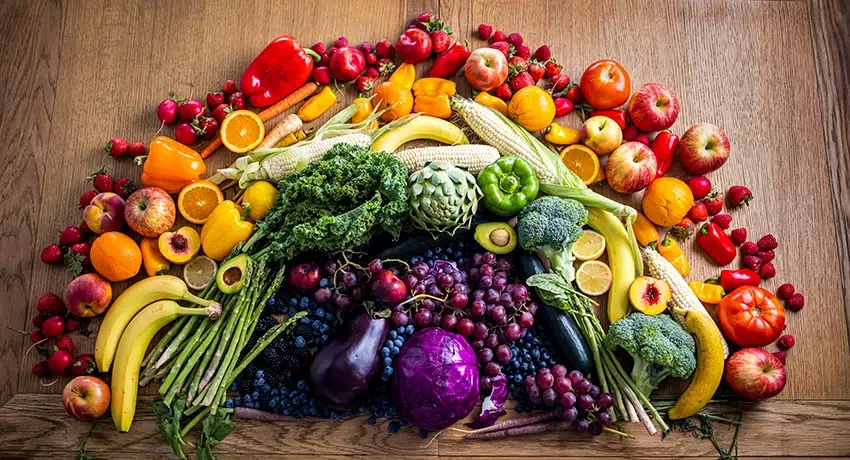How Is Being Vegan Good for the Environment?
By Beth Rush
What if your daily meals could help reduce pollution, conserve precious resources, and even help combat climate change? The impact of what you eat is more significant than you think. Discover how being vegan is good for the environment.
Reduces Greenhouse Gas Emissions
One of the most compelling reasons to consider a vegan diet is its potential to reduce greenhouse gas emissions. The livestock sector is a major contributor to greenhouse gases, responsible for about 14.5% of global emissions.
Shifting toward plant-based foods can minimize diet-related land use by 76% and diet-related greenhouse gas emissions by 49%. By cutting out animal products, you directly reduce the demand for livestock, thereby decreasing the associated emissions.
Preserves Land and Forests
Animal agriculture demands vast amounts of land for livestock grazing and feed crop cultivation. Nearly 80% of deforested areas in the Amazon are used for cattle ranching. This deforestation leads to biodiversity loss, soil degradation, and disruption of carbon storage. By choosing plant-based foods, you support land conservation and reduce the pressure on forests, helping maintain biodiversity and ecological balance.
Conserves Water Resources
Animal agriculture is notoriously water-intensive. A staggering amount of it is used daily to keep livestock hydrated, grow crops for animal feed, and operate farms and slaughterhouses. Producing a single pound of beef requires approximately 2,400 gallons of water, while the amount needed for a pound of tofu is around 244 gallons. This stark difference highlights how a vegan meal plan can significantly reduce your water footprint.
Reducing water consumption is vital for sustainability as freshwater becomes increasingly scarce, especially in drought-prone areas. Even just one person going vegan can save as much as 219,000 gallons of water annually.
Mitigates Overfishing
Animal-based diets often include seafood, contributing to overfishing and the depletion of marine populations. Overfishing affects one-third of the world’s fish stocks. Shifting to vegan meals can help lessen the demand, helping maintain balanced marine ecosystems and protect ocean diversity.
Minimizes Pollution
The creation of animal products contributes to various forms of pollution, including water, air, and soil contamination. Manure runoff from livestock farms often contains nitrogen and phosphorus, which causes dead zones where aquatic life cannot survive. Adopting a vegan diet helps mitigate these pollution sources, leading to cleaner ecosystems and healthier communities.
Enhances Food Security
Feeding animals for meat production is an inefficient way to produce food. For example, it takes about 6 kg of plant protein to make just 1 kg of animal protein. You contribute to a more efficient food system by consuming plant-based foods directly.
This efficiency can improve food security, as more crops can be used to feed humans rather than livestock. In a world where hunger and malnutrition remain pressing issues, efficient food production is crucial.
Promotes Sustainable Agriculture
Vegan meals often rely on a variety of fruits, vegetables, grains, and legumes, which can be produced using sustainable agricultural practices. These methods include organic farming, crop rotation, and permaculture. These promote soil health and biodiversity and reduce chemical inputs. Supporting sustainable agriculture can contribute to a more resilient food system that can withstand environmental challenges and support long-term food production.
Additionally, opting for whole foods instead of preserved or processed ones is crucial for your health and the environment. While buying pre-packed, pre-cut, or pre-peeled fruits can be convenient, choosing fresh produce allows you to avoid excess additives, sodium, and saturated fats.
Upholds Ethical Considerations
While not directly related to environmental impacts, ethical considerations often drive people toward a vegan lifestyle. Industrial animal farming raises significant concerns about animal welfare, including overcrowding, inhumane treatment, and poor living conditions. Choosing vegan helps you align your choices with values of compassion and sustainability, fostering a more humane food system.
Lowers Your Carbon Footprint
What you eat significantly impacts your overall carbon footprint. Shifting to a vegan meal plan could reduce your carbon footprint from food by up to 73%. This drastic reduction is due to the lower emissions associated with plant-based food production compared to animal-based foods. By choosing vegan meals, you play an active role in combating climate change.
Encourages Environmental Awareness
Adopting a vegan diet can be a gateway to broader environmental awareness. When you make conscious food choices, you become more attuned to the impacts of other lifestyle decisions, such as energy use, waste reduction, and transportation. This heightened awareness can inspire further actions that collectively contribute to environmental sustainability. For instance, you might become more inclined to reduce single-use plastics, opt for public transportation or carpooling setups, and support eco-friendly brands.
Your Plate, Your Planet
Going vegan is a powerful way to support environmental sustainability. From reducing greenhouse gas emissions to conserving water and preserving forests, the benefits of plant-based eating are clear and substantial. Embrace the power of plants and make a positive difference for the Earth, one meal at a time.
Ultimately, the awareness and habits developed through a vegan lifestyle can lead to a ripple effect, encouraging your friends and family to make more environmentally conscious choices as well. As more people adopt sustainable practices, the collective impact on the environment grows. This chain effect contributes to a more resilient and healthy planet for future generations.
About the author: Beth Rush is the green wellness editor at Body+Mind, where she covers topics like the power of climate consciousness at all stages of education. You can find Beth on Twitter @bodymindmag. Subscribe to Body+Mind for more posts by Beth!
